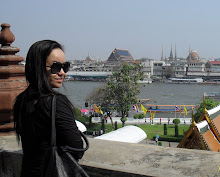MANILA, June 1, 2011—While the formulation of Philippine laws is essentially based on the needs and conditions of the country’s citizens, the crafting of the Reproductive Health (RH) bill cannot be attributed to Filipino lawmakers but to foreign organizations, said Atty. Jo Aurea Imbong, Executive Secretary of the Catholic Bishops’ Conference of the Philippines (CBCP) Legal Office.
“It’s really introducing a different culture and replacing our own with something else. It is a cultural intrusion [in which] you supplant a beautiful thing with something that is alien,” Imbong explained.
“It’s quite disturbing because our culture, as it is, has very wholesome ideals, built on Christian values, and now they attack the very groundings of those values by attacking religion. When we talk of religion, we talk of values,” she added.
The RH bill continues to face growing opposition from civic groups, child development experts and concerned families who assert that the measure violates Constitutional and religious freedoms, and risks the well-being and proper formation of children and the youth.
House Bill 4244—or the Responsible Parenthood, Reproductive Health and Population and Development Act of 2011—is the latest version of a piece of legislation that mandates taxpayer-funded procurement and distribution of the “full range” of birth control drugs, devices and services, a six-year sex education program in all schools, and the provision to employees by their employers of these same family planning drugs, devices and services.
Also included in the bill, which proposes a P2 billion annual budget for its implementation, are a two-child ideal as regards family size, the classification of artificial contraceptives as “essential medicines,” and punitive actions for those who speak against the measure or who refuse to abide by its provisions.
Imbong pointed to the Sixth Country Programme to the Philippines formulated by the United Nations Population Fund (UNFPA)—a document that details the agency’s goals and directives on population and reproductive health policies in the country—as indicative of the foreign origins of RH legislation.
Implications of the RH bill’s imperialist nature expressed by several lawmakers, social analysts and newspaper columnists, have often been met with skepticism by RH supporters, dismissing these as mere speculation or baseless opinions.
However, according to the lawyer, publicly available documents which reveal the UN’s directives for countries such as the Philippines support such assertions of cultural imperialism.
“Based on the documents, the laws and ordinances for the local government councils are already ready, so the officials wouldn’t have to bother drafting these from scratch. They are responsible for the template that was used,” Imbong pointed out.
International bodies United States Agency for International Development (USAID) and UNFPA are the ones primarily involved in this, the lawyer said.
“You can see that the definitions and the terms—the language—[in international and local documents] are the same. In essence, the substance of the RH bill is not Filipino.” (Diana Uichanco)


























No comments:
Post a Comment